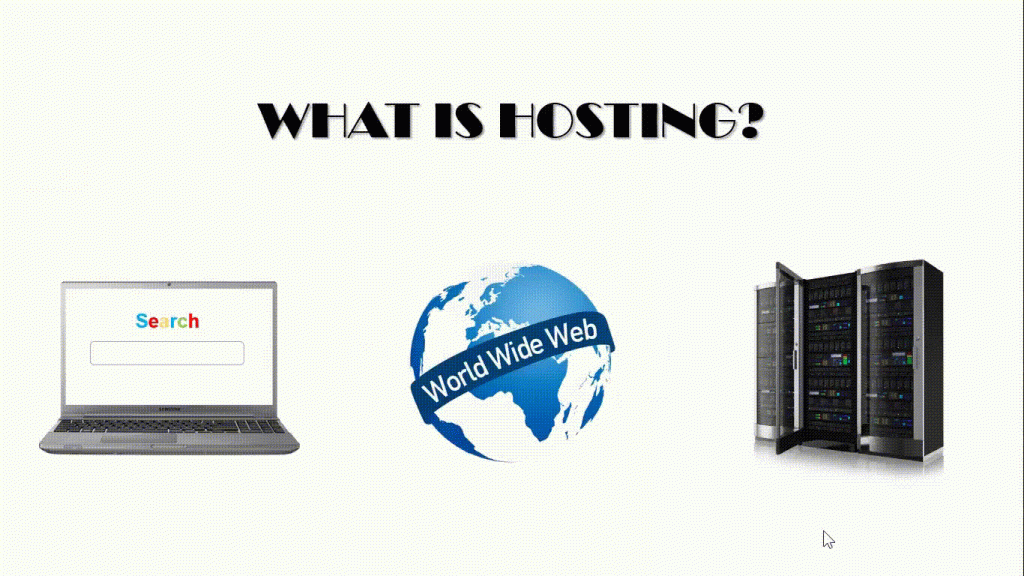Since the Coronavirus outbreak and the #socialdistancing practice, most people have to make their purchases and Christmas shopping online. Many businesses have expanded their presence into digital markets. Just like any startup, many business owners face a steep learning curve during the initial stage of their digital transformation. For instance, what is server hosting? And why are some expensive?
What is Hosting?
Since the Coronavirus outbreak and the #socialdistancing practice, most people have to make their purchases and Christmas shopping online. Many businesses have expanded their presence into digital markets. Just like any startup, many business owners face a steep learning curve during the initial stage of their digital transformation. For instance, what is server hosting? And why are some expensive?

There are different types of hosting plans available in the market for new digital entrepreneurs, from as low as $10 per month to several thousand. Picked the wrong sizing and hosting models will eat up your profits. If you are not sure, you can always start with a budget and increase your expenditure over time.
Here are some comparisons of the different types of hosting:
| Type | Description | Pros | Cons |
| Dedicated Hosting | In this plan, you pay for an entire physical server from a hosting service provider. | • Have full control over the server. • No other sites that are sharing your server take up your resources. • Better customer support. | • More expensive than other options. • Might waste of resources when not fully utilize. • Need to have own technical team to manage the hosting yourself |
| Shared Hosting | As the name suggests, shared hosting is where your website is hosted on the same server. It hosts another website as well. | • Comparatively cheaper than dedicated hosting. • Suitable for personal or SME with less traffic • It does not require to have technical knowledge as the hosting provider will take care of most things. | • Other websites on the same server might take up more resources and impact your site’s performance. • Other sites on the same server might expose your site to malicious scripts and impose security threats. |
| Virtual Private Server | Slightly upgrade from Shared Hosting. Ideal for the customer who needs more control for their website, as each website has its own space on the server. | • Cheaper than Dedicated Hosting but slightly expensive than Shared Hosting. • Can have full control over the server, just like dedicated hosting. • Better security. | • If another VPS in the same server consumes too many resources, the performance of your VPS container may be affected. • Require to have own technical team to manage the hosting yourself. |
| Cloud Hosting | A newer type of web hosting combine multiple servers at once and act like one single server. It allows users to use as many resources as they want without limitation of the physical server | • Easily scale resources needed for different situations. • Lower cost as no hardware commitment. • Usually comes with strong backup and disaster recovery feature. | • No physical access, like your data, is on the Cloud, and you will need the Internet to access it. • Price is not fixed, as it depends on the resources and features you need. |
| Colocation Hosting | Colocation hosting is where you rent a rack space with a data center, you will bring in your own server, while the data center will maintain the premises like power, cooling facility, security, and Internet uplink for you. | • Suitable for businesses focusing on providing hosting for others • Reduce overall cost of IT Management • Avoid data breach | • Not suitable for personal or SME as the initial investment is still high. • Require professional knowledge to handle the hardware and hosting. • You take full responsibility for maintaining the hardware. |
| In-house Hosting | You do everything on your own, including maintaining the hardware, software, premise, and security. | • Full control over the site. • The choice of hardware is up to you. • Can manage web storage space and performance more effectively. • Can deploy security standards higher than industry practice. | • Steep learning curve. • Require continuous learning on the latest technology update. • You take full charge of maintaining the hardware, software, and premises • High initial investment. |
Generally, if you are not a multinational company, large corporate, or hosting service provider, you do not need anything near Colocation hosting or In-house hosting. The benefit and return generated do not justify the initial investment and effort you put in.
Most business owners just need a reliable hosting service provider and outsource the technical headaches. Dedicated hosting and shared hosting used to be popular among SMEs and Corporates, but many of them start switching to cloud hosting with a pay-as-you-grow model. According to research did by Berkaweb in the year 2020, Cloud hosting (18.3%) is the fastest-growing segment of the industry, followed by shared web hosting (10.3%), and dedicated web hosting (5.6%)


